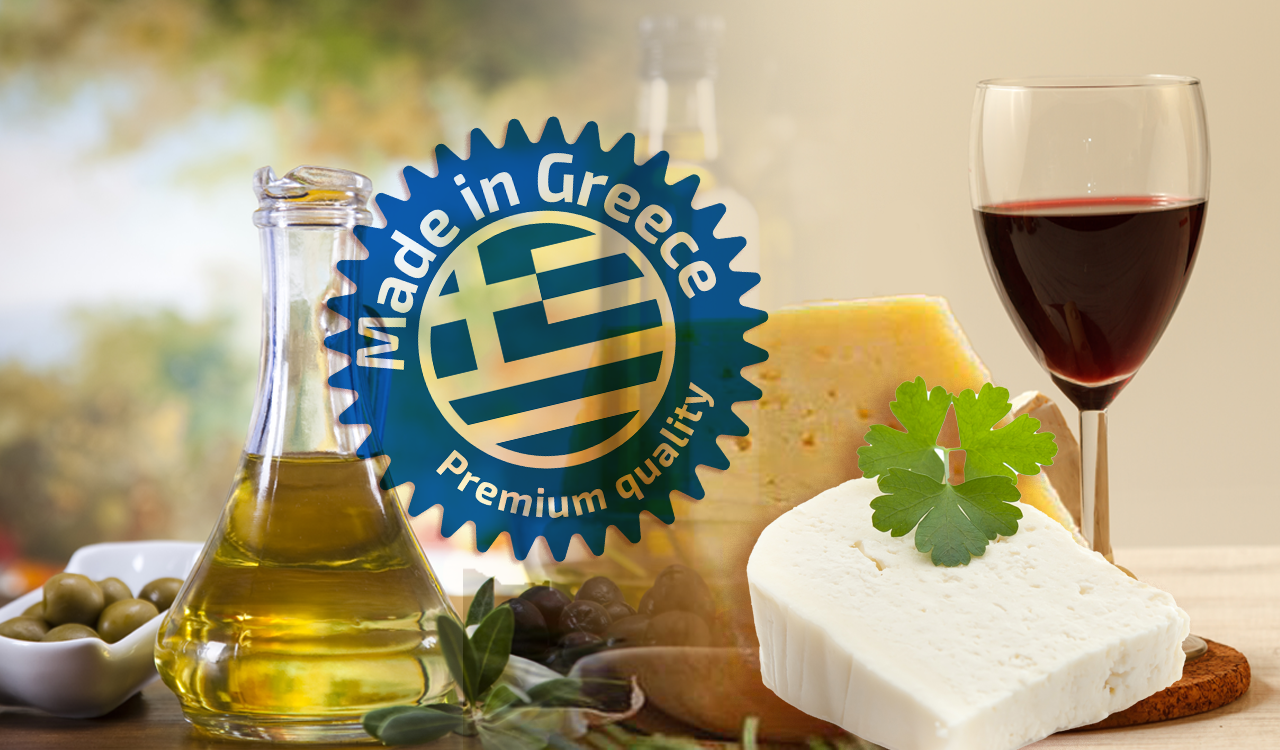
Greek fruits, beverages, or even clothing labeled ‘Made in EU’ and not ‘Made in Greece’? The discussion on how to indicate the origin of a wide range of products came to the surface during agricultural mobilizations in many countries of the continent, with Polish farmers and livestock breeders leading the way, chanting “We are Polish, we produce Polish goods.”
Polish producers stated that national origin should not be eliminated from their products and replaced by the indication “Produced in the EU,” as this would affect European consumers as well as the producers themselves who benefit from the added value of the product they produce.
In the same vein, their French counterparts also joined the wave, despite the tightening of labeling regulations on specific products; they desire the re-nationalization of rules regarding food labeling.
For decades, many European countries protected their domestic production by promoting local products with origin labels. However, this model faced challenges with the creation of the single European market and the need for broader protection against global powers like China and the USA. Exceptions were made, in the case of food products such as beef, honey, fruits, vegetables, fish, and olive oil with honey being added to the list recently where origin labels are required. Also, dairy products must indicate origin.
As explained by the President of the Union of Consumer Workers of Greece Apostolos Raftopoulos, the main demand is for the specific country of origin to be indicated, rather than the EU in general. “The country of origin must be clearly stated while ensuring quality controls” he points out.
On the other hand, the President of the Union of Agricultural Cooperatives of Naxos, Dimitris Kapounis, states that if EU labeling is ultimately extended, it will be another blow to the primary sector.
“Products from Greece cannot be labeled as ‘European Union’ because it opens the door to adulteration. Currently, we are inundated with French potatoes. If you look at import percentages, Egyptian potatoes stand at 90,000 tons and French potatoes at 78,000 tons, according to 2023 data. If this happens, there will be no Greek products, only ‘European’,” he says.
Finally, Kapounis emphasizes that compared to other EU countries, Greece produces close to nothing, and there will be further degradation of the primary sector, whether it concerns fruits or vegetables.”Our products need protection through controls, but also from the State itself,” he concludes.
Source: tovima.com
Latest News

WTTC: Travel & Tourism to Create 4.5M New Jobs in EU by 2035
This year, international visitor spending is set to reach 573 billion euros, up by more than 11% year-on-year

IMF: US Tariffs Shake Global Economy, Outlook Downbeat
IMF slashes global growth forecast to 2.8% as U.S. tariffs create uncertainty and ‘negative supply shock

First Step Towards New Audiovisual Industry Hub in Drama
The project is set to contribute to the further development of Greece’s film industry and establish Drama as an audiovisual hub in the region

Airbnb Greece – Initial CoS Ruling Deems Tax Circular Unlawful
The case reached the Council of State following annulment applications filed by the Panhellenic Federation of Property Owners (POMIDA)

Mitsotakis Unveils €1 Billion Plan for Housing, Pensioners, Public investments
Greek Prime Minister Kyriakos Mitsotakis has announced a new set of economic support measures, worth 1 billion euros, aiming to provide financial relief to citizens.

Alter Ego Ventures Invests in Pioneering Gaming Company ‘Couch Heroes’
Alter Ego Ventures' participation in the share capital of Couch Heroes marks yet another investment by the Alter Ego Media Group in innovative companies with a focus on technology.

Corruption Still Plagues Greece’s Driving Tests
While traffic accidents continue to claim lives on Greek roads daily, irregularities and under-the-table dealings in the training and testing of new drivers remain disturbingly widespread

Pope Francis Died of Stroke and Heart Failure Vatican Confirms
As news of the official cause of death spread, tributes poured in from across the globe. The 1.4 billion-member Catholic Church is united in grief, remembering a pope who championed inclusion, justice, and compassion

Increase in Both Museum Visits, Revenues for 2024
As expected, the Acropolis was the top archeological site in the country, followed by Sounion, Mycenae, the ancient theater of Epidaurus, and Vergina in northern Greece

Where Greece’s Tourists Come From: A Look at 2025’s Top Visitor Markets
The United Kingdom continues to hold the top spot as the largest source of incoming tourism, with 5.6 million seats booked for Greece this summer — up 2.2% from last year. This accounts for 20% of all international air traffic to Greece
















![Ξενοδοχεία: Μεγάλο το ενδιαφέρον για επενδύσεις στην Ελλάδα – Η θέση της Αθήνας [γραφήματα]](https://www.ot.gr/wp-content/uploads/2025/03/Athens-hotels-90x90.jpg)
























 Αριθμός Πιστοποίησης
Αριθμός Πιστοποίησης